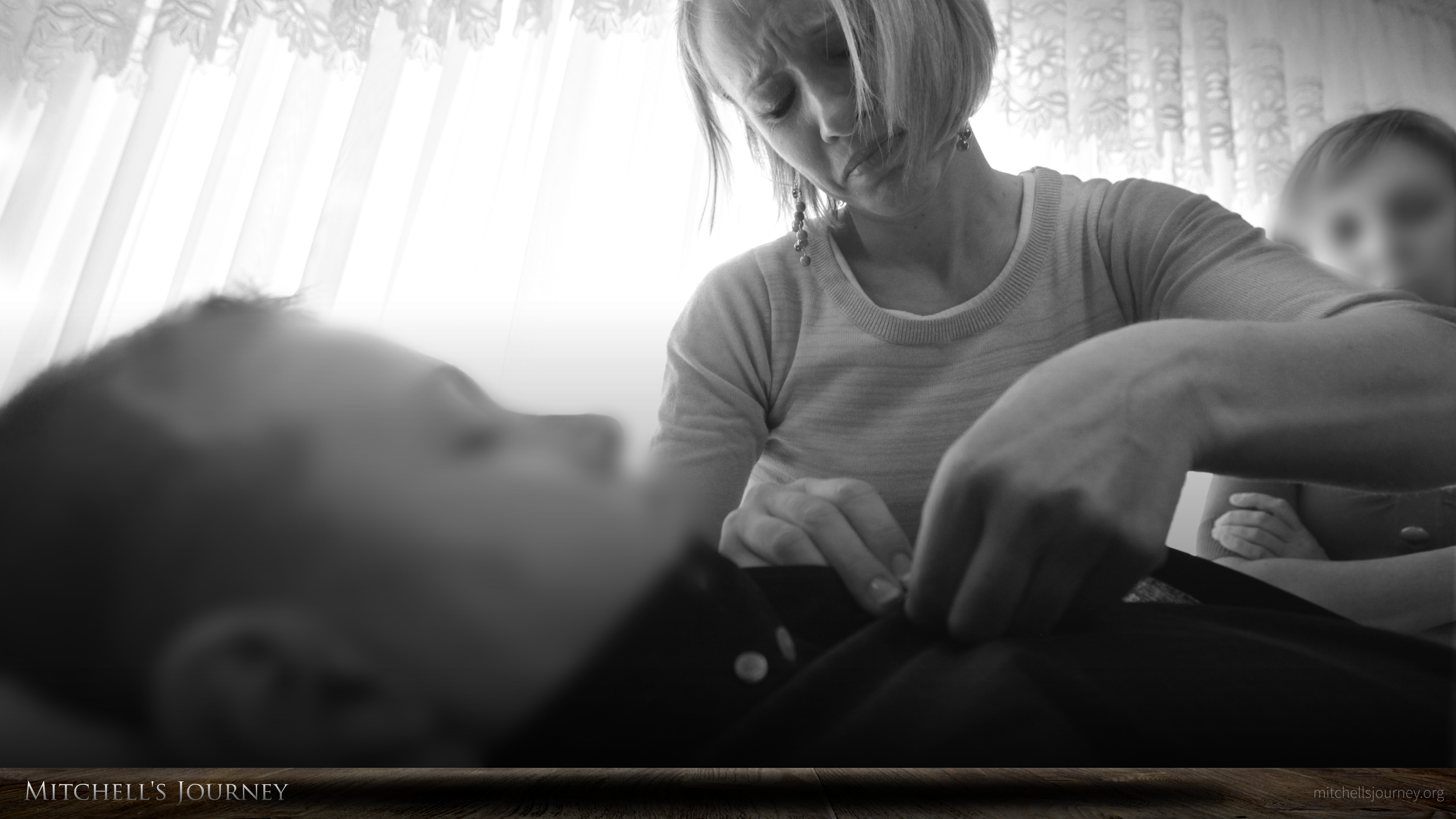As far back as I can remember, Natalie and I always enjoyed having people at our home; we enjoyed serving those we love a great meal, and we enjoyed good conversation even more. On this day, we had extended family over for a BBQ. It was a hot, muggy afternoon. The cousins were in the backyard playing on an inflatable water slide. Little Mitch didn't have a lot of muscle strength to do what the other kids were doing, so he stayed behind and wanted to be near me, which I loved.
I was busy preparing our meal on the grill. My tripod and camera were on-the-ready to capture any moment that caught my eye. Little Mitch asked if he could wear one of my favorite hats that had artificial grey hair sprouting in every direction from the top. At the time, I didn't have any grey hair, and it was one of my favorite hats. Since I've lost Mitch, I have grown quite a bit of grey hair, which to me, is a visible testament to the price we pay for grief and heartache.
Mitch always wanted to sit next to me at the grill. He'd sit on a stool and quietly talk to me about things on his mind. Sometimes he didn't say anything at all. He just wanted to be – and that's okay, too. Often, Mitch would make funny observations that were both insightful and witty.
I remember this summer afternoon so vividly. I also remember having a distinct impression this day that a terrible life storm was on the horizon and that darkness was near. I didn't understand that feeling at the time, but looking back, I can see it was my loving Father preparing me … in effect, warning me to make moments matter.
For almost 2 years following the death of Mitch, certain places in my home evoked the most tender feelings. Whenever I was at my grill, I'd instinctively look to my side, hoping to see little Mitch next to me, only to find emptiness. I'd burst into tears, and my heart would break all over again. For a season, all I saw was emptiness everywhere. I had an aversion to certain rooms in my home – for they reminded me of my absent son, and those places became a source of deep pain.
Over time, however, I knew I needed to create new memories in those empty places – to fill those voids with something of joy and happiness. It took time. Step by step, new memory by new memory, I began to replace that sense of profound emptiness with something new.
Part of my grief was magnified because I wanted to go home … you know, the home I once knew and loved. Yet everything stood as a testament that I was no longer home and could never go there again.
Author Thomas Wolfe wrote a book, You Can't Go Home Again (1940), which, among other things, describes how the passing of time prevents us from returning "home again." On at least one level, it is a brilliant meditation on life and making the most of the time we have.
On my grief journey, I had to learn that I could never go home again … at least to the home I once knew. That time before, with little Mitch, was my old home. Today is now, and that is where I've learned to live.
I chronicle my journey with Mitch here, not to fixate on yesteryear and on sorrow – but instead, I write my memories as though I were a weary traveler who discovered a treasure, a memory I wish to keep. I put it here for safekeeping.
Pain has been my teacher and has shown me how to appreciate my present. Whether through death or simply the passage of time, all that we have today will be different tomorrow.
--- UPDATE ---
Since I first posted this story, my daughter has graduated as a nurse and is married with two children. My oldest son Ethan is married and going to college in California, and my youngest, Wyatt, will graduate high school next year. We sold our home and almost everything we owned - in part, to step into the sacred practice of detachment (from things).
We live only a few miles from our old home. The truth is, I miss that place, not so much the place (even though it was lovely); I miss my little children who used to live there. However much I yearn to go home again, I will never be able to return to that place again. Even if we still lived there, it would be a different home than it once was.
Today, Natalie and I live in a different place, making new memories with our children and grandchildren. I carry the light of hope in one hand and a treasure chest of gratitude in the other. Somewhere, between my hands, my heart still carries a longing for home. A longing for what once was. That is grief.
Though grief is heavy and it hurts, it also teaches me. The home I used to have is forever gone. But I have today. And that's something. My grief has taught me that home isn't so much a place but a condition of the heart, and I intend to make the most of the home I have today.



